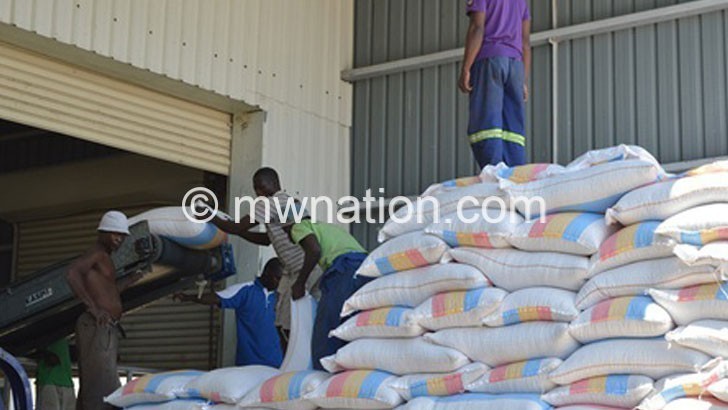Kenya removes duty on maize imports
Grain Traders and Processors Association of Malawi says the move by Kenya to remove duty on maize imports gives local traders in Malawi impetus to negotiate the lifting of maize export ban.
The association’s president Grace Mhango said in an interview yesterday that while it is too early to conclude whether this presents a lost opportunity for local grain traders in the face of the existing maize export ban, Kenya’s move gives them a leeway to lobby for either lifting of the export ban or export waiver.
Kenya’s Business Daily quoted Agriculture Cabinet Secretary Mwangi Kiunjuri as having said that strategies are in place to waive 50 percent duty imposed on imported grain from outside East Africa Community region, to avoid last minute rush to plug the grain shortage that has seen the price of flour rise by 30 percent in one month.
He said the duty-free maize import window opens in July once the current stocks.

“We are watching the situation closely to ensure that proper mechanisms for importation are put in place to avoid being caught unawares,” Kiunjuri is quoted as having said.
Mhango said at the moment, potential maize markets are available in Rwanda and Mozambique where maize is selling at $288 (about K211 000) and $290 (about K213 000) per tonne, respectively.
Minister of Agriculture, Irrigation and Water Development Joseph Mwanamvekha said two weeks ago that lifting the maize export ban will be an option government needs to look at amid a projected 355 000 metric tonnes (MT) maize surplus this year.
He said government can only open up the borders once it has procured enough stock for the reserves as well as for Agriculture Development and Marketing Corporation (Admarc.)
Export restrictions on staple foods or cash crops are frequently imposed in developing countries to promote food security or industrial development goals.
The maize export ban imposed after the 2016/17 harvesting period cost Malawi K69 billion in potential export revenue, according to a study by the International Food Policy Research (Ifpri) published December last year.





